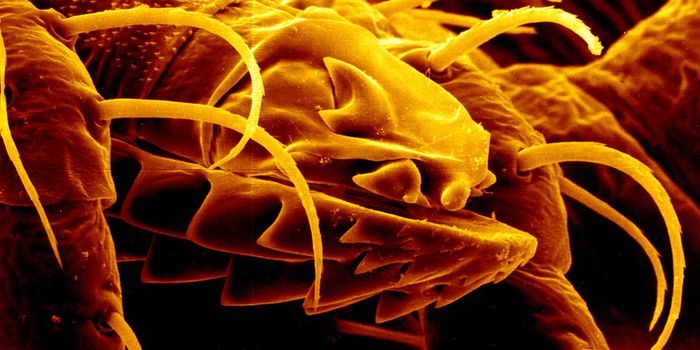Gene therapy research for spinal muscular atrophy is seemingly on an onwards and upwards trajectory. In the last week, researchers at the University of Missouri published findings on a compound that promises to boost the patient’s own production of a vital motor protein. Now, pharmaceutical giant Biogen paid big money ($75 million) based on favorable Phase III results for another compound that also targets the same spinal muscular atrophy gene.
Spinal muscular atrophy (SMA) is a genetic condition that causes motor neuron loss and progressive muscle wasting. Over time, patients die early, often from respiratory problems involving weakened respiratory functions.
Due to mutations in the SMN1 gene, patients with SMA don’t make enough of the survival motor protein (SMN). So far, therapies that aim to treat or cure SMA have all focused on fixing the mutation or otherwise increase the body’s production of the SMN protein.
For researchers at the University of Missouri, their quest landed on the SMN2 gene – a nearly identical backup of the SMN1 gene that’s mutated in patients. Though SMN2 does make some of the vital motor proteins, it’s not enough to compensate for the mutation in SMN1. Thus, researchers aimed to augment SMN2’s capability to make the correct protein.
Led by Chris Lorson, the Missouri team identified a compound that “turned up the volume” of SMN2. "It's a type of molecule called an antisense oligonucleotide, or ASO, that essentially is synthetic string of nucleic acid that binds a specific sequence in the gene," explained Lorson. Once bound to the gene, the ASO causes the SMN2 gene to make more of the vital SMN protein.
“Our current treatment helps the body create a backup mechanism to combat the disease and extends survival in mice with SMA from just 13 days to a little over five months after only one injection at birth," said Lorson. "This treatment helps produce the right form of SMN, the one that was only produced at very low levels before."
Indeed, though Lorson’s lab achievements are impressive, he cautions against expecting a revolutionary SMA treatment soon. But an SMN treatment may be available quicker than Lorson predicted.
On Monday, Biogen shelled out $75 million to Ionis Pharmaceutical, developer of the SMA drug called Nusinersen. Nusinersen is also an ASO that targets the SMN2 gene in order to increase the production of the correct version of the SMN protein. The drug was in early Phase III clinical trials in infants when significant improvements with the treatment prompted researchers to unblind the trial early. The highly encouraging results precipitated the multimillion-dollar deal, as Biogen likely expects Nusinersen to become the next blockbuster drug. Even so, it may take another year or two for an FDA-approved drug for SMA to reach market.
“From a research perspective, things seem to be moving at lightning speed, but if you are a patient or a family member, things can never go fast enough, so I think there’s a realized sense of urgency, whether or not it’s for patients who don’t have the disease yet, are not born, or for patients who have had the disease for a decade and are wondering when their opportunity would come,” said Lorson.
Additional sources: EurekAlert!, University of Missouri, Investor Ideas
-
APR 30, 2024Immuno-Oncology Virtual Event Series 2024
-
MAY 07, 20243rd International Biosecurity Virtual Symposium
-
SEP 03, 2024Microbiology Week Virtual Event Series 2024
- See More


















































